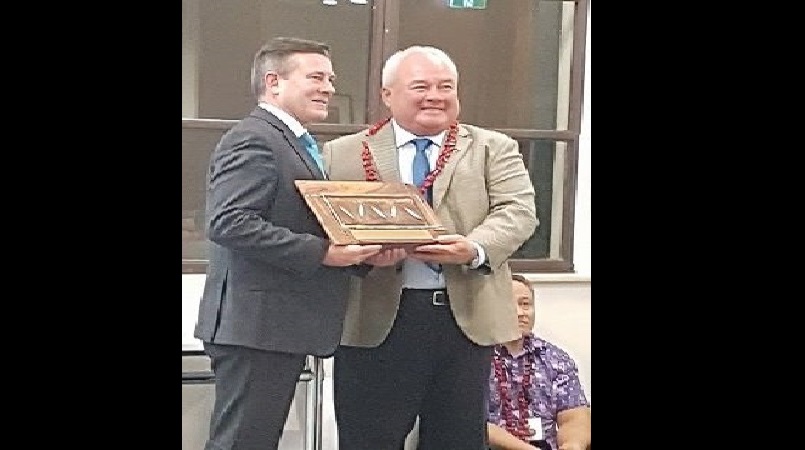
The number of Samoans employed under the Recognised Seasonal Employer (RSE) scheme with New Zealand has tripled since it began with 600 workers a decade ago.
Minister for Commerce, Industry and Labour, Lautafi Fio Selafi Purcell said Samoa now works in partnership with 36 employers and the workers are now spreading over 9 regions within New Zealand.
“The RSE scheme brings in an estimated SAT$20 million per season into Samoa’s economy which itself is a major milestone of the scheme,” he said at the RSE Employers Conference in Wellington this week.
At the individual level, the average net income of a Samoan RSE worker, over an average period of six weeks, amounts to SAT$18,000.00; an equivalent of the total salary earning for three years at the starting rate in Samoa, he explained.
With the earnings says Mr. Purcell, the workers could now afford to support their families, villages and communities financially and developed skills of owning business, managing income and communication skills.
The RSE scheme between New Zealand and several Pacific island countries celebrated its tenth anniversary this week.
“Samoa was fortunate to be selected as one of the first pilot countries on the programme,” said Mr Purcell.
“This historic policy initiative by the government of New Zealand has many opportunities for our people to work and to earn their living in New Zealand and return to Samoa,” he added.
Mr Purcell said the extent of the RSE’s popularity in the Pacific made it challenging to realize, that it had been ten years in the making.
“There is strong empirical evidence that confirms the realization of the triple win benefits of the RSE. In Samoa the benefits are apparent. The same is said for other sending countries as we have heard their success stories during the celebrations,” he said.
Mr. Purcell also thanked the employers who partner with countries and help RSE workers to make sound economic decisions on their earned income.
Mr. Purcell also acknowledged the sudden passing of one of the experienced RSE workers this year.
He also emphasized the challenges Samoa face and how it has grown in confidence with the establishment of its labour mobility policy framework, capable staff, and effective processes and procedures to manage the scheme.
“The recruitment and selection of workers has improved remarkably with the continuing assistance of the government of New Zealand through the Ministry of Business Innovations and Employment (MBIE),” he said.
“Samoa continues to apply stringent requirements of its ‘Zero Tolerance Policy and ‘Stand Down Policy’ against non-compliant individuals and villages. These policies have been very effective in countering mischief,” he added.
He said over the years programmes such as the ‘Inclusive Development’ have been introduced to assist workers who are interested in investing in a business which allows workers to establish their profiles in the banking system.
RSE workers have also invested in the superannuation fund in Samoa – the Samoa National Provident Fund while working under the scheme.
Many of who were not eligible to its benefits are now enjoying those benefits similar to those who are working full time in Samoa.
He emphasized the signing of PACER Plus by many of the Pacific States which will provide solid grounding for free flow of workers and services across the borders.
Mr. Purcell said through collaborative partnerships with the government of New Zealand and Samoa’s RSE employers, Samoa will continue to achieve the objectives of the programme and to fully realise the triple win benefits.
“Samoa will continue to take a lead role in managing its labour supply with stronger emphasis on providing quality and disciplined workers and make the RSE programme more resilient, sustainable, and ethical for the betterment of people and for economic prosperity of both countries,” he said.
New Zealand has announced an increase in funding of about $15 million for the RSE programme and workers could soon be employed in the tourism and other sectors if all goes well.
Photo supplied by MPMC.
